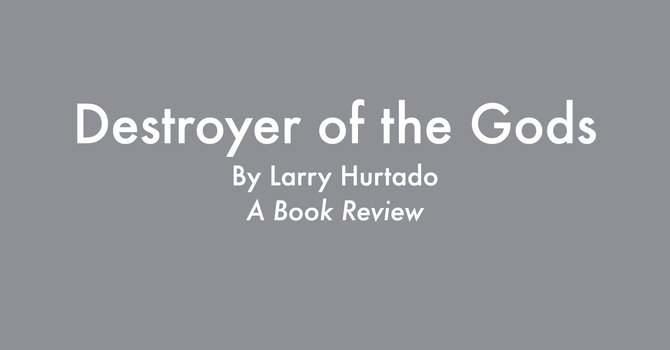
Visiting the City that Never Sleeps
In the Fall of 2011, my wife and I spent a week in New York City. It was at the height of the "Occupy" momvement, so we dodged protests, took in Broadway shows, ate at 5-star swanky Manhattan restaurants and (barely) survived a few taxi rides.
I even managed to get a sun burn while touring around Lady Liberty.
We also decided to attend Redeemer Presbyterian Church on the Upper East Side where Dr. Timothy Keller served as the Senior Pastor. Riding the subway system, we jockeyed our way to the campus of a local university where Redeemer met.
We entered an enormous auditorium and sat down with our old fashioned bulletin in an empty brightly lit room.
As the service began, every seat in the auditorium was filled by young urban professionals of every ethnicity.
And then we crossed our fingers.
We hoped that this was the location where Tim Keller would preach that morning. We understood that Keller and the other campus pastors would visit different Redeemer campuses to preach, so there was a chance that we would hear another one of Redeemer's pastors that morning instead of Dr. Keller.
The Christian celebrity obsession (fan boy!) is not lost on me. However, Keller had been someone I had listened to and read extensively up until this point and hoped I would hear him preach live.
After the quality but simple worship, the public reading of Scripture, and a few responsive prayers, I was thrilled as Keller walked on the stage.
What followed was 35 minutes of intelligent, winesome, accurate, and passionate Biblical exposition. Keller stood stationary, had no gimmicky media, and kept a monotone voice through his sermon.
And yet every young ubran professional in that room was gripped.
Including this visiting Canadian.
This was yet another moment in which Tim Keller's life, ministry, and legacy shaped me. Up until this point I had read every book of his, quoted him (an embarrassing) amount of times in my own homilies, and consumed every other resource he had been a part of.
He just had a way to make big things make sense.
And this week he died.
Properly, the Western Christian world exploded in lament and grief for the giant we lost.
So, here is my small contribution on top of the countless others, to honour a mentor I never met.
3 Ways Tim Keller impacted me:
1. His passion for mission
I can't remember the source, but Keller was asked something like, "How have you stayed humble having a mega church in the heart of Manhattan?"
For those outside the church, this may seem like a strange question. You can understand, there is an insidious pride that can creep in when one leads a massive church - especially in the heart of one of the worlds most influential cities. At the height of Redeemer's influence, there was about 5500 New Yorkers attending.
But thankfully Keller never allowed this to be a distraction.
Keller responded by saying, "When I think about the sheer amount of people that live in Manhattan, we have not even begun to scratch the surface of the need to make Jesus known in our city."
In other words, his attention was not on all the people that sat in his pews on Sunday morning, but for those who were not.
I am grateful for Keller's perserverence in keeping focused. He didn't get sidetracked by dusty and yet alluring evangelical idols, but instead kept people, made in the image of God, at the forefront of his purpose.
2. His Intellectual Hospitality
People have asked me, "Where do you find the boooks you read?"
The answer is simple, but like a magician revealing his secrets I'll tell you:
I read the footnotes in Tim Keller's books.
In the footnotes you will find the thinkers, practiioners, and scholars that have shaped Keller's thinking and writing. Surprsingly, you won't just find heroes of biblical and church history (although you will very much find that), but also atheists, skeptics, scholars, sociologists, psychologists, philosophers of every stripe and worldview.
Keller refused to construct straw man arguments - arguments that are caricatures of differing positions. Instead he built steel man arguments - accurate representations of people who thought differently than him. By reading widely, being accurate and empathetic to their view point, he committed to fairly representing those who held an antithetical view to his.
In doing this, he was actually able to engage with people of differing viewpoints and do so with respect.
Numerous times Keller was invited onto speaking panels in which he was the cognitive minority. Having watched these types of interactions, it is clear that he was able to hold a Christian position, and the other people on the panel respected him.
In this way Keller is a model of what it looks like to have winsome witness in a pluaralized, polarized, and perplexing world.
3. His thoughtful engagement of culture
I write this while attending my first year residency at Talbot School of Theology (Biola University) in Southern California. I have committed myself to a Doctoral program, focused on engaging culture wisely.
One of the reasons I am enrolled is because the church always seems to be eons behind the culture and thus fails to address the real issues that people face. The approach most taken by the church is one of silence or ambivalence. The reasons vary, but most often it is because of fear, ignorance, and a dismissal of the culture as evil.
So I have a keen interest in helping the Canadian church bravely, biblically, and boldly engage a post-Christian culture.
Keller modelled how to do this.
A perfect example was brought to my attention after recieving an email from Spotify, the music streaming platform I subscribe to. In my 2022 "Spotify Year in Review," one of my most listened to podcasts last year was Questioning Christianity. It was a 7 part podcast series that published lectures done by Keller to engage those who were exploring Christianity. Cultural hot topics like meaning, satisfacation, identity, morality, justice and hopefulness were addressed.
In each episode, Keller majestically and masterfully connected human curiosity about these topics and the corresopnding Christian response in a way that is invitational and compelling. He is never crass, always clear, and obviously caring.
Throughout his ministry Keller was able to enter the culture without capituatling to it. Holding a historical and Biblical orthodoxy, he cast a vision for pastors like me who desperately want to speak and engage with our culture, without demonizing or bowing to it.
Because of his posture and approach, his books will be referenced for decades to come as they posit a framework for proper cultural engagement.
Everything will be alright in the End
I've wrestled with why Keller dies of pancreatic cancer at 72, after his extensive service of Jesus, and others live much later who contribute little.
It seems unfair.
Yet, after re-reading my notes on Keller's book Walking with God through Pain and Suffering I was able to gain some perspective.
A perspective that Keller kept all the way until the end.
You see, he truly believed in the story and hope of Jesus. It was not a distant truth he spoke about, but a true reality he acclamated into every facet of his life - including his own suffering and death.
Here he is in Walking with God through Pain and Suffering:
It is the most liberating idea possible and ultimately enables you to face all suffering, knowing that because of the Cross, God is absolutely for you and because of the resurrection, everything will be alright in the end. (49)
It struck me: the most beautiful thing this man has left us is not another book or sermon, podcast or article, a framework for cultural engagement or even a hospitable intellect, but a captivating example of what it looks like to die well.
And because of his trust in Jesus Christ, this is an eternal hope that now nothing can take away - not even pancreatic cancer.
Do you want to know the most profound thing I realized?
I won't have to cross my fingers the next time I am in his proximity, hoping to hear him at a distance. Because of the resurrection of Jesus and our shared faith in Him, that one day I'll be able to dine with him.
Not at some swanky 5-star restaurant in Manhattan, but at a feast where the host is Jesus himself.
And in this way, everything really will be alright in the end.
Thanks Dr. Keller for everything.
Until we meet again (for the first time).





